Across Africa, schools are more than centers of academic instruction—they are the social anchors of communities and the incubators of future leadership. Yet, many of them still operate in environments that are neither safe, supportive, nor sustainable. Poor infrastructure, limited access to clean water, inadequate sanitation, and overstretched resources continue to impede both learning and the wellbeing of students. As the continent faces the twin pressures of climate change and growing educational demands, eco-schools are emerging as a transformative response—reimagining education through the lens of sustainability, resilience, and holistic
development.
Eco-schools blend green infrastructure with human-centered design. Solar energy, natural ventilation, rainwater harvesting, and ecological building materials are not just environmentally conscious choices—they also create healthier, more inclusive learning environments. These schools often serve as community hubs, offering spaces for environmental education, health awareness, and social support. By reducing environmental footprints and fostering a sense of collective care, contributing to a broader cultural shift—one where education is deeply intertwined with wellbeing and ecological responsibility.
This evolution is not only about architecture or technology; it’s about redefining what education means in the African context. For generations, traditional African knowledge systems prioritized values such as communal wellbeing, respect for nature, and moral development. Storytelling, proverbs, and indigenous philosophies like Ubuntu—which emphasizes shared humanity— carried ethical lessons that shaped character and social cohesion. Today, modern education systems often overlook these elements, focusing narrowly on academic outcomes. Yet, as global crises deepen, education must do more than prepare students for exams—it must prepare them
for life.
Environmental literacy is a vital part of this redefinition. Africa, despite contributing least to global emissions, is experiencing some of the most severe climate impacts—desertification, flooding, and food insecurity among them. Teaching students about sustainability is no longer optional; it is a necessity. Eco-schools are uniquely positioned to embed this learning through hands-on projects like school gardens, recycling initiatives, and partnerships with local farmers. These not only teach science and environmental care but also provide nutrition, reduce hunger, and promote food security.
Mental health, often sidelined in education policy, is another critical dimension. Across many African schools, children face immense pressures—from poverty and insecurity to trauma and academic stress—yet access to emotional support is scarce. Counselling services, safe spaces, and emotional literacy programs remain limited. In conflict-affected or underserved areas, equipping teachers with training in trauma-informed care and psychological first aid can make a life-changing difference. The same goes for physical health: access to clean water, proper sanitation, regular physical activity, and nutritious meals significantly affect student attendance, cognitive development, and long-term wellbeing.
However, for this to flourish, investment in human capital is just as important as infrastructure. Teachers are the key players of sustainable education. They are not just knowledge deliverers but role models, community builders, and catalysts for change. Professional development must go beyond pedagogy to include wellness practices, environmental education, and emotional intelligence. Simultaneously, teacher wellbeing itself must be prioritized—burnout, low pay, and poor working conditions undermine the very transformation eco-schools seek to achieve.
Policy support is equally essential. While some countries, such as Nigeria, have signaled intent to incorporate sustainability into their education frameworks, implementation often remains fragmented or underfunded. Strong collaboration between ministries—particularly Education, Health, and Environment—is needed, along with clear policy guidelines, adequate funding, and localized implementation strategies. Community involvement and the integration of indigenous
knowledge systems can further root these initiatives in context, making them more effective and sustainable over time.
In the face of growing ecological and social challenges, eco-schools represent a bold vision: education that not only informs, but heals; that not only equips students for the future, but actively shapes a better one. They are seeds of transformation, grounded in African values and adapted for contemporary realities. And just as importantly, they remind us that sustainability is not a luxury—it is a necessity for both people and planet.
If schools are where the future is nurtured, then investing in their sustainability and wellbeing is one of the most powerful commitments we can make—not only to Africa’s children, but to the world they will inherit.
______________________ Oluwatosin Osemeobo is a passionate lifelong learner, writer, sustainability advocate, and global educator with nearly two decades of impactful experience in the education sector. He is known as a prophetic guide and a wisdom voice, deeply committed to helping individuals—especially educators—rethink life, faith, and sustainable living in alignment with divine purpose. Tosin holds a Nigeria Certificate in Education from FCT College of Education, Abuja, and a Bachelor of Education from Obafemi Awolowo University (OAU). His academic journey is further enriched with international certifications, including Inclusive Leadership from the Open University (UK), Sustainable Diet from the United Nations Climate Change program (UNCC), and multiple prestigious courses from the University of Cambridge in areas such as the UN Convention on the Rights of the Child, Trade Rules, and Sustainable Development. He serves as the President and Convener of When TEACHERS Pray—a global virtual platform committed to nurturing the spiritual wellbeing of educators and igniting revival within school communities. In this role, he leads with a passion for intercession, weaving together purpose, prayer, and personal growth to inspire transformation in both lives and classrooms. Tosin is also a Transformational Thought Coach, hosting free and paid masterclasses for teachers and purpose-driven professionals through Thought Campus—a digital space and learning community that offers coaching, insight-driven masterclasses, and practical tools for personal transformation. His work blends practical wisdom with divine insight, helping people explore purpose, leadership, and destiny from upward perspective. He designs and leads initiatives that position schools as hubs for sustainable development and teacher wellbeing, collaborating with organizations and educators globally to promote systems that are spiritually grounded, socially just, and environmentally conscious. Currently based in Abuja, Nigeria, Tosin remains actively involved in the education space while contributing to global conversations on school sustainability, human rights, educator wellbeing, and spiritual leadership. Passionate about driving systemic change, he is open to speaking engagements, strategic partnerships, and consultancy opportunities that align with his vision of purpose-driven, globally impactful education. 📧 Email: tosemeobo@gmail.com📞 Phone: +234 806 561 1550 Linkedin: www.linkedin.com/in/oluwatosin-osemeobo-9b8a7a12a


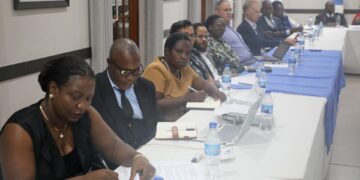
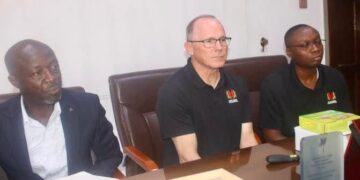































































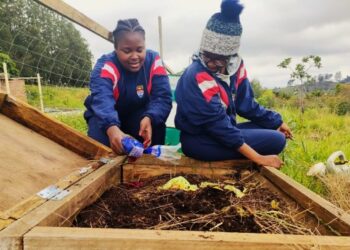


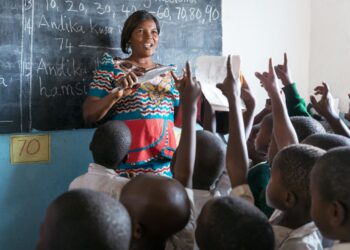

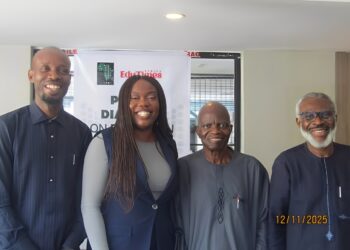










 EduTimes Africa, a product of Education Times Africa, is a magazine publication that aims to lend its support to close the yawning gap in Africa's educational development.
EduTimes Africa, a product of Education Times Africa, is a magazine publication that aims to lend its support to close the yawning gap in Africa's educational development.